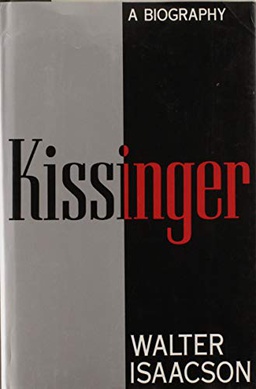
I had written that my next book would be some fiction, but this thing has been on my shelf for a while. I have read every other Walter Isaacson biography (Steve Jobs, Elon Musk, Ben Franklin, Leonardo Da Vinci, Jennifer Doudna, and Albert Einstein) , except this one. They are all very entertaining and informative reads, I figured this would be no different.
Kissinger was born in Fürth, Germany, in 1923. I was not aware of this, but antisemitism already had a pretty strong footing in Germany well before Hitler declared war on the world. Kissinger, who was brought up in a Jewish family, lived with this fact for the majority of his childhood. Jewish children could only attend Jewish schools and were generally treated as second-class citizens with restrictions that the rest of the general public was not subject to. Kissinger, for example, loved soccer as a child, but as a Jew, was barred from attending matches. He occasionally snuck in, pretending not to be Jewish, but was discovered and publicly beaten for doing so. Like most Jews living in Germany during the 1930’s, they hoped and expected the anti-Jewish sentiment to abate over time. As history has shown, it did not. Kissinger’s father lost his teaching position because he was Jewish. Longtime, non-Jewish family friends began to distance themselves from Kissinger’s family. The writing was on the wall for the Kissinger family. They needed to start a life somewhere else. That somewhere else was New York. At 15, Kissinger and his family, speaking very little English and with very few belongings, journeyed to their new life. Without this move, the Kissinger story would likely have ended before the end of World War II as most of Kissinger’s Jewish family and friends that remained in country did not survive, once they were forced into concentration camps.
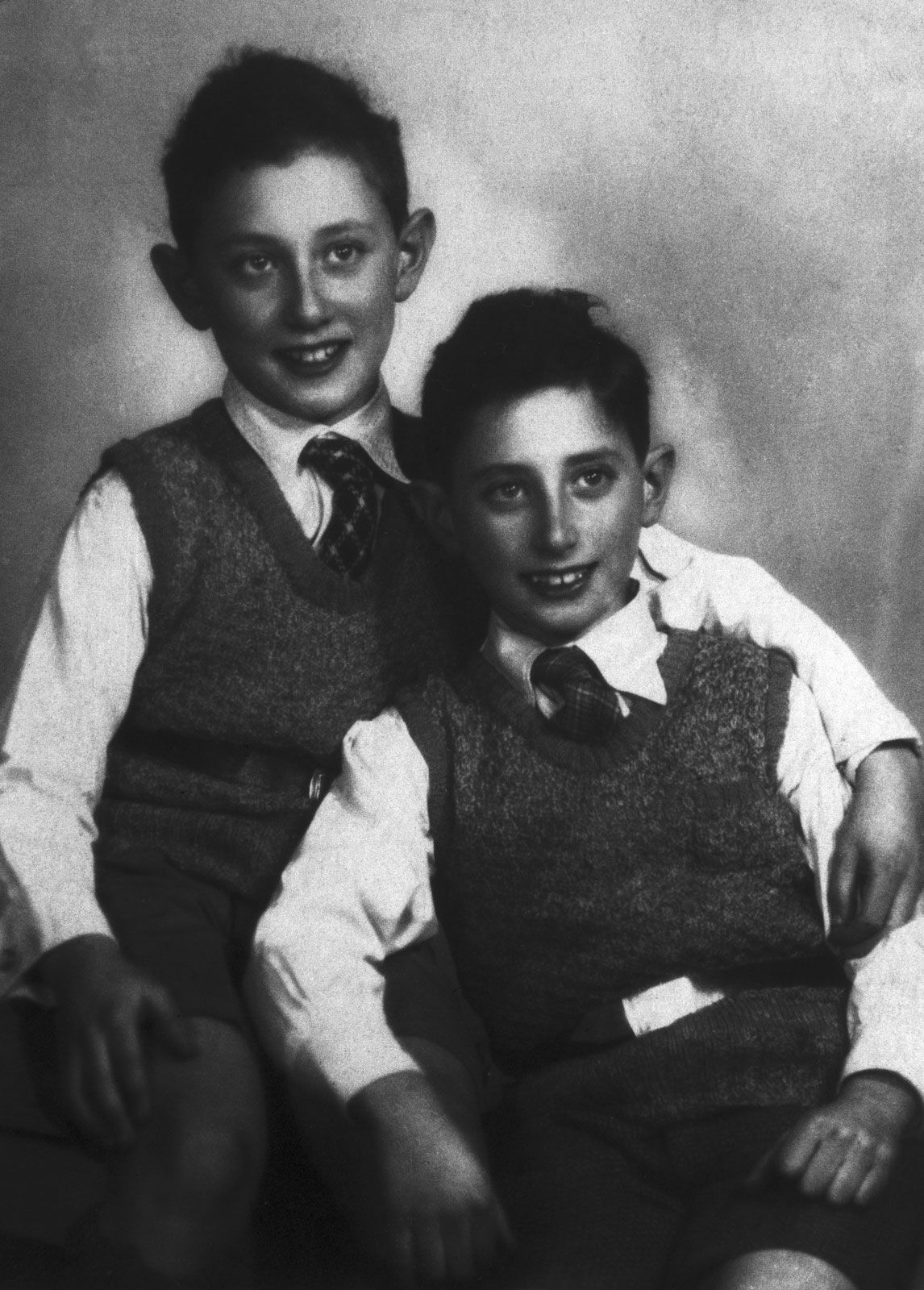
Kissinger at age 11, with his brother Walter at age 9.
Initially, young Henry had difficulty adapting to his new surroundings. He was used to keeping on high alert as he walked in public in anticipation of a random beating for being Jewish. Over time, he was quite elated to discover that this level of heightened awareness was no longer necessary in his new country.
Shortly after Henry reached draft age, the United States entered World War II. As Henry entered service in the US Army, he and other immigrants pulled into service, earned their US citizenship during boot camp. It was a proud moment for Henry. Having done very well on standardized testing, he initially was sent to Lafayette college after boot camp. The military had a program to train draftees for technical roles. At this point, Henry realized that he excelled academically, and very much enjoyed college life. This program was abandoned a year later as the military got to the point that it needed warm bodies to fight. Just seven years removed from the constant harassment he endured from the Nazis as a Jew living in Germany, Henry was now going back as an American to fight them. He participated in the Battle of the Bulge. This was a turning point for the war and also its bloodiest battle. German forces were largely effective, but suffered losses that depleted their forces by estimates as high as 100,000 casualties and left them much less effective going forward.
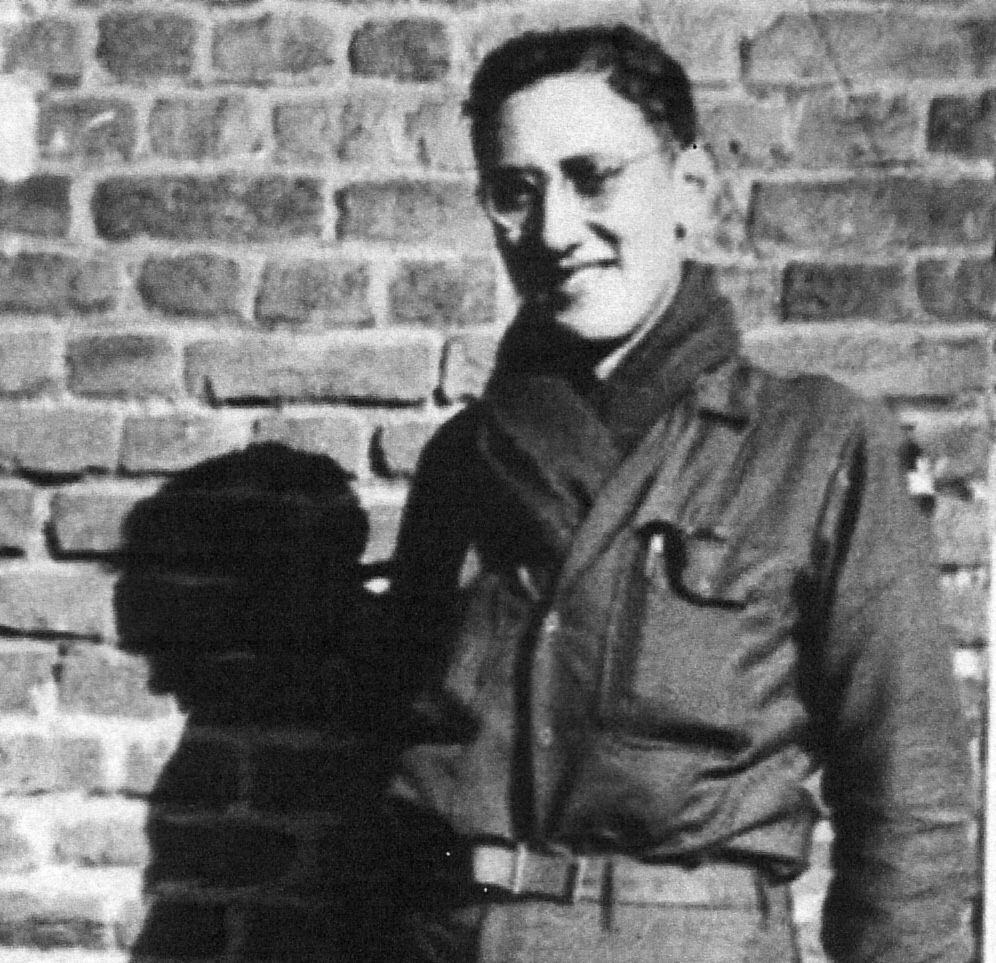
Kissinger as a soldier.
Having shown himself to be very intelligent, and also being fluent in German, gave Henry a very unique opportunity to be in charge of the de-Nazification of large sections of Germany. He reportedly did this role in a very professional manner. He was tasked with ensuring Nazi leaders were rounded up and that any attempt by them to regain control was quashed. Mayors of the towns he presided over were to report to him. He did not carry out his role in a vengeful manner as many might be temped to do in a similar situation where a person is now in control of his former oppressors. Kissinger stated that it was often easy to identify former Nazi leaders in the German population as they were the ones that appeared well-fed. He was only 23 when he served in this role.
At the completion of his military service, Kissinger remained in Germany as a civilian, working for the US government in largely the same role as he last held in the the Army, but at a much higher pay rate. Upon returning home, he wished to continue his education. Fortunately for him, Harvard was giving former servicemen preferential entry. Kissinger took full advantage and flourished as a student of History.
Kissinger remained at Harvard for 15 years-getting his PhD and becoming a professor in that time. He used his connections at Harvard to meet world leaders and the social elite of his time. One of his means to do this was by creating a periodical called Confluence and asking rich and powerful world leaders to contribute articles to it. Many of them obliged, as they were sucked in by the prestige of being associated with a Harvard journal. The journal had a very low circulation and Kissinger seemed to do little to try and increase it. Many close to him at the time theorized that he did it just to expand his network with the elite and had little intent of actually growing the publication. Everything he did seemed to be to grow his circle of connections – and it worked. He was made a full professor of government just eight years after obtaining his PhD.
These connections eventually led to a cabinet position, serving as security advisor and then Secretary of State for the Nixon administration. In my opinion, an inordinate amount of time is spent on this period of Kissinger’s life. My guess is that the author had such a wealth of information from this timeframe, that he was afraid to exclude anything. The Nixon administration recorded and documented everything – including that which would be the undoing of that administration – The Watergate Scandal. This portion of his life also encompassed the last five years of the United States’ involvement with the Vietnam War. Both periods were incredibly important to US history, but Kissinger lived to 100 years old and nearly 400 of the 760 pages of this biography are dedicated to just those five years. To be fair, this book was published before Kissinger turned 70.
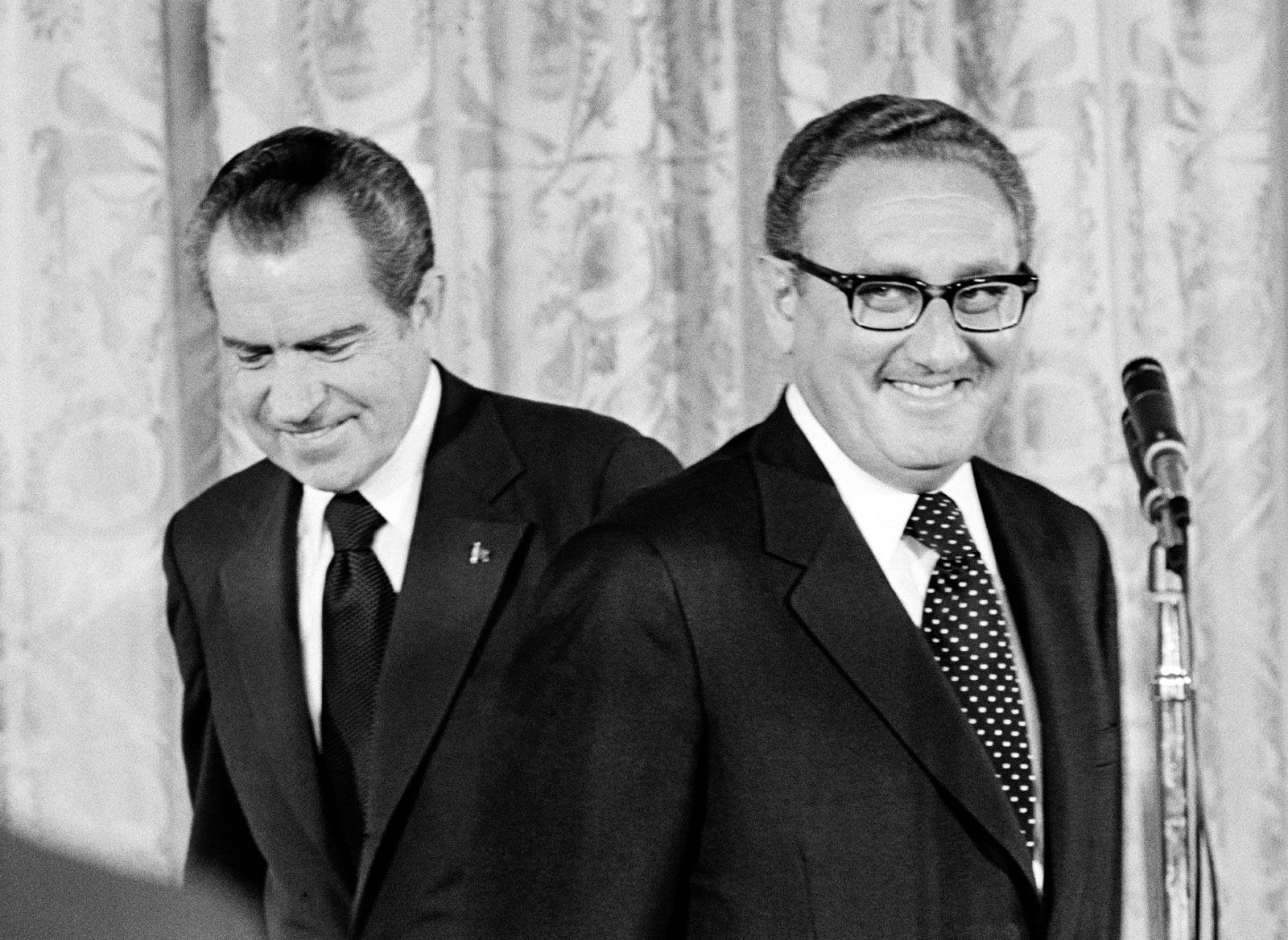
Kissinger and Nixon.
During his time as National Security Advisor and Secretary of State under Nixon, Kissinger was involved with negotiating a peace agreement with the North and South Vietnamese. This act won Kissinger a Nobel prize along with North Vietnam’s president Lê Đức Thọ. Kissinger gave his prize money to charity and Lê Đức Thọ declined the prize entirely. Kissinger had negotiated on South Vietnam’s behalf without really consulting South Vietnam’s president, Nguyễn Văn Thiệu. This led to an agreement that gave the appearance of a temporary peace, but led to the eventual overtaking of South Vietnam by the North and dragged Cambodia into a bloody genocidal war a couple of years afterward. It is believed that Kissinger and Nixon both knew this would be the eventual outcome, but used it to simply give a little window of time for US troops to vacate the conflict before what eventually happened. There are many moments while reading this book that I became really sick to my stomach to learn how government officials were quick to drop thousands of bombs or send men to their deaths in various other ways, just to keep up some sort of political appearance. I am guessing things still work this way.
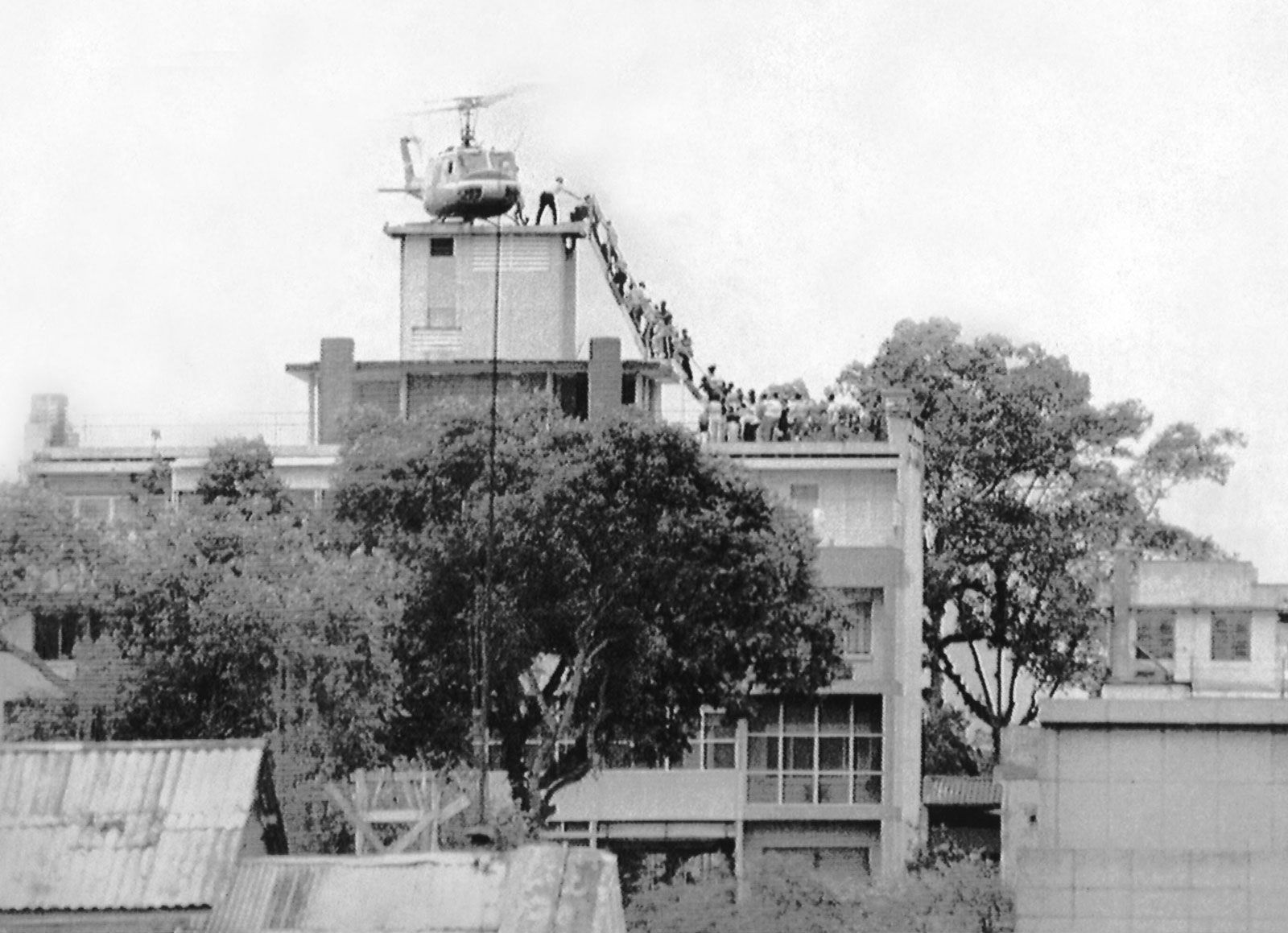
The fall of Saigon (above)
One thing Kissinger was known for while part of the Nixon administration, was that he was somewhat of an unlikely sex symbol. I say unlikely, because he did not exactly have “leading man” looks. During the majority of that time period, he was single. He would appear out in public and at government as well as Hollywood functions with numerous Hollywood starlets and female celebrities of the time and he maintained relationships with many of them. Candice Bergen, Jill St. John, Shirley MacLaine, Liv Ullmann, Marlo Thomas, Samantha Eggar, Raquel Welch, and Diane Sawyer were among those mentioned.
As Watergate shredded much of the Nixon administration, Kissinger was able to keep his hands mostly clean. Kissinger was clearly involved with wiretapping of various government officials, many in his own office, as well as members of the press, but there was some semblance of legality, under the guise of national security, to this. Nothing about Watergate was legally defensible. Kissinger remained out of the country for much of the Watergate hearings doing foreign relations dealings. This was a valid effort, but probably also with some intent to insure he is distanced from the political firestorm that was engulfing Nixon.
Almost immediately prior to the Watergate hearings, Spiro Agnew, Nixon’s Vice President, vacated his office in disgrace following a bribery and tax-evasion investigation completely independent of Watergate. This left the post vacant. It was filled by House Minority Leader Gerald Ford. When Nixon left office shortly afterward, Ford assumed the Presidency and the Vice President position was once again vacant. If Kissinger, as Secretary of State, had been a natural-born citizen, he likely would have filled the spot.
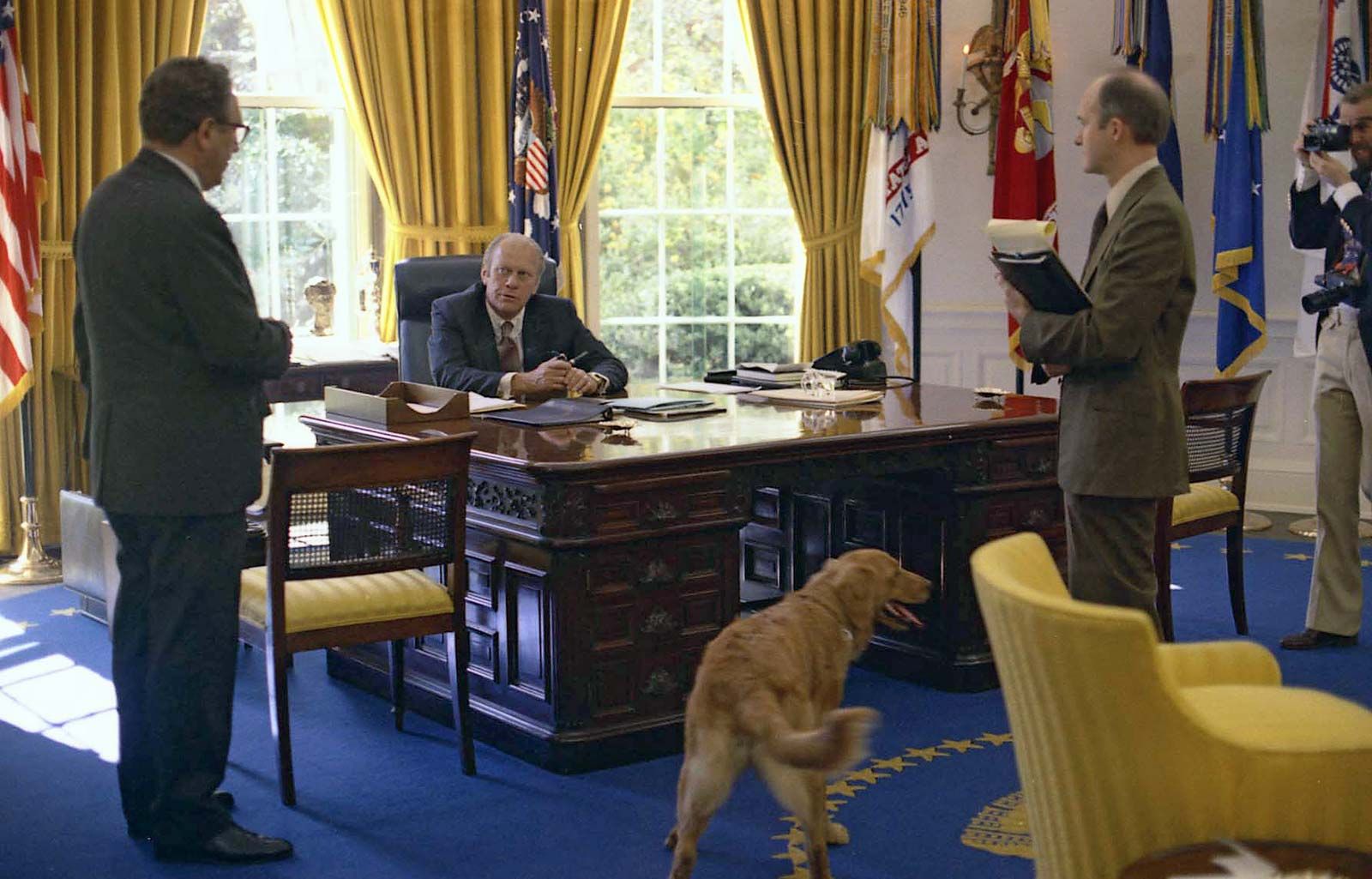
Kissinger, did however, remain at his post as Secretary of State under Gerald Ford. They had interacted previously when Kissinger was still a professor at Harvard and Ford was comfortable with working with him. Ford, however, was defeated by Jimmy Carter after he had served what would have been the remainder of Nixon’s term. Carter ran on a platform that was largely critical of Kissinger, so Kissinger’s term ended when Ford’s ended.
After leaving government Kissinger was given a handsome sum for writing his memoirs. He spent much of his first five years out of office doing this, after which, he started Kissinger Associates. It was a firm that was set up to allow US companies to interact effectively with foreign governments. Kissinger could provide introductions to foreign leaders and trim some of the bureaucratic underbrush of starting to conduct business in foreign countries. He would negotiate on behalf of both sides to set up new business ventures. One such example is getting American Express preferential treatment in foreign banking as this would benefit tourism in a country that did so. He also set up agreements for investments in mining industries and a host of others. Clients would pay Kissinger Associates an annual retainer of say $200,000 a year and then a fee, plus expenses, for addressing a particular business need in the foreign country of interest. Kissinger also continued work as a foreign relations expert for various media outlets and investment firms. He became quite wealthy with this endeavor and was able to continue his lifestyle of international travel in private jets as he had done as Secretary of State.
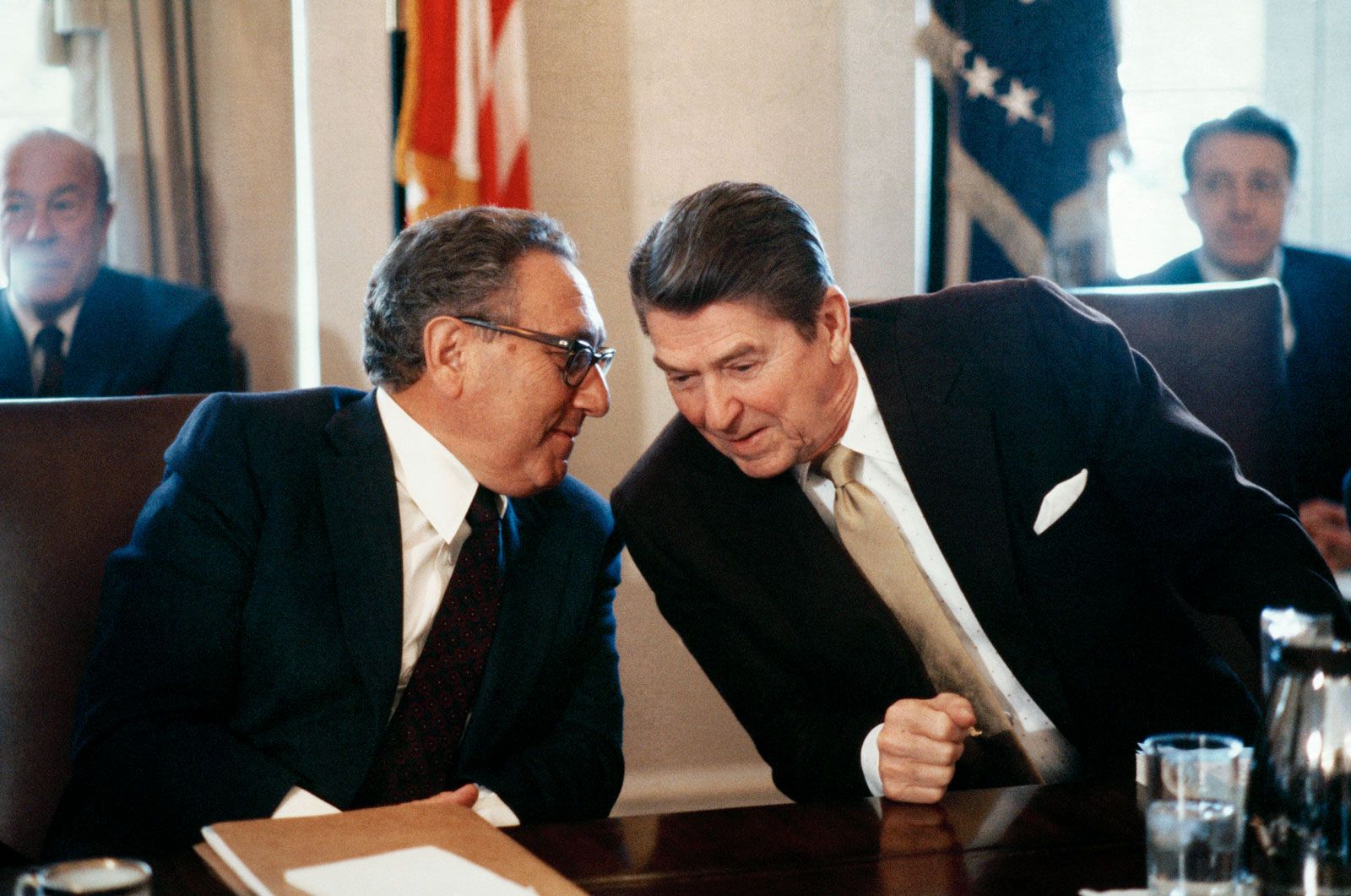
Kissinger as a private citizen pictured with Reagan.
This book was not nearly as captivating as other Walter Isaacson biographies, but this, despite my having read it last, was his first. This was a very informative read, but lacked the style that drew the reader into the following books. Isaacson clearly became a much better biographer after this work was completed.

